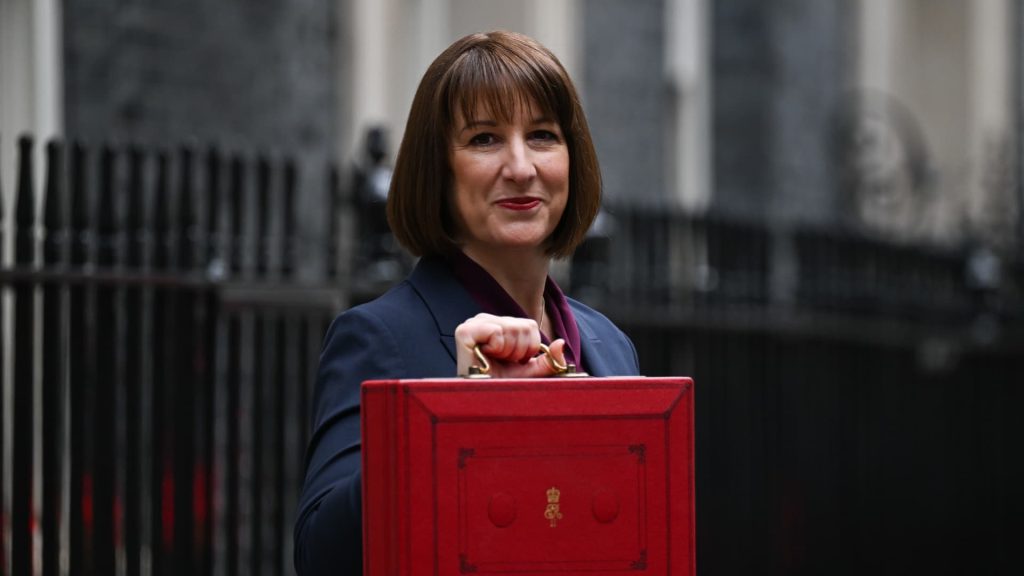The economic landscape in the UK has been met with growing concern as companies react critically to Finance Minister Rachel Reeves‘s recent budget proposals. Following Kingfisher’s report highlighting rising costs and dampened consumer sentiment, various sectors appear to be bracing for the implications of anticipated tax hikes. With a Spring Statement due shortly, all eyes are on Reeves as businesses voice their dissatisfaction with the government’s economic strategies amid fears of sluggish growth and weakened confidence.
| Article Subheadings |
|---|
| 1) Rising Criticism from Major Retailers |
| 2) The Effects of Increased Employment Costs |
| 3) Government’s Defence of Economic Policies |
| 4) Impacts on Consumer Sentiment and Corporate Confidence |
| 5) The Road Ahead and Calls for Change |
Rising Criticism from Major Retailers
On October 30, 2024, Rachel Reeves presented her budget in Parliament, which has drawn sharp criticism from the retail sector. Kingfisher, the parent company of the well-known home improvement retailer B&Q, reported a decline in consumer spending, particularly on high-value items. This sentiment resonates with a larger pattern of discontent among various British businesses that have endured a taxing landscape since Reeves’ budget announcement. Given the current economic climate, characterized by inflation and rising costs, retailers express concern that government policies are exacerbating challenges, impacting sales, and contributing to negative consumer sentiment.
The Effects of Increased Employment Costs
One of the most controversial aspects of Reeves’ budget has been the increase in national insurance contributions for employers, coupled with a significant rise in the national living wage planned for April 1. This move has drawn widespread ire, particularly from consumer-driven businesses such as Tesco and JD Wetherspoon. Tim Martin, chairman of JD Wetherspoon, highlighted the financial burden of the new policies, estimating an additional £1,500 cost per week for each of his establishments. Meanwhile, Tesco anticipates a staggering £250 million hike in annual costs due to increased contributions. Not surprisingly, this development has led to apprehension among employers about the detrimental impact on staffing levels and overall economic health.
Government’s Defence of Economic Policies
In light of the backlash, Rachel Reeves has attempted to justify her budget, asserting to Sky News that the government implemented necessary tax increases to secure public services and strengthen public finances. While the government remains insistent about the need for these measures, many businesses counter that such tax rises will stifle growth rather than encourage it. The government’s perspective maintains that a robust financial infrastructure is crucial for long-term stability, particularly in an environment marked by uncertainty and financial risks.
Impacts on Consumer Sentiment and Corporate Confidence
Consumer confidence is a critical metric for the health of the economy, and the latest economic policies have led to widespread caution among shoppers. Companies, including AB Foods and Frasers Group, reported that their customers exhibited decreased spending habits as a direct response to the government’s budgetary decisions. Eoin Tonge, Finance Director of AB Foods, noted that many shoppers were “pulling in their horns,” echoing concerns of a growing sense of fear that inhibits discretionary spending. This deleterious shift in consumer behavior has the potential to slow overall economic recovery, leaving many industries at a crossroads.
The Road Ahead and Calls for Change
As the business community awaits Rachel Reeves‘ Spring Statement, pressure is mounting for the government to address these grievances and rejuvenate confidence in the economy. The British Retail Consortium has emphasized the need for “injecting confidence” into the market, predicting that the increases in tax obligations will escalate costs for retailers by £5 billion. The Confederation of British Industry (CBI) has similarly called for immediate action to reassure businesses, urging the government not to impose further tax burdens during this parliamentary session. Both entities support a shift in focus toward cutting regulatory burdens and facilitating investment in key areas such as research and development.
| No. | Key Points |
|---|---|
| 1 | Major retailers, including Kingfisher and Tesco, criticize the impact of rising costs linked to the latest budget. |
| 2 | Increased national insurance contributions and national living wage hikes may lead businesses to reconsider staffing levels. |
| 3 | The government defends tax increases as necessary for maintaining public finances and services. |
| 4 | Weaker consumer sentiment is evident as shoppers become wary due to economic policies. |
| 5 | Calls from business groups for changes in economic policy to boost confidence and spending in the market. |
Summary
As the UK faces daunting economic challenges, the response from major retailers and business entities underscores the growing discontent with government policy. The implications of increased taxation and employment costs may create a significant drag on both corporate performance and consumer confidence. With the Spring Statement on the horizon, the government has a critical opportunity to reassess its approach and potentially realign with the needs of the business sector to instigate recovery and growth.
Frequently Asked Questions
Question: What are the key components of the recent budget presented by Rachel Reeves?
The budget includes significant increases in national insurance contributions for employers and a 6.7% rise in the national living wage, which is expected to elevate operational costs for many businesses.
Question: How are businesses reacting to the government’s economic policies?
Many businesses, particularly in the retail sector, have expressed strong criticism, citing that the increased costs could lead to reduced staffing and negative consumer sentiment, potentially hindering overall economic recovery.
Question: What solutions are being proposed by business groups to combat economic challenges?
Business groups have called for the government to focus on providing confidence to the market, including avoiding further tax increases and addressing regulatory burdens, while also emphasizing the need for investment in skills and innovation.
